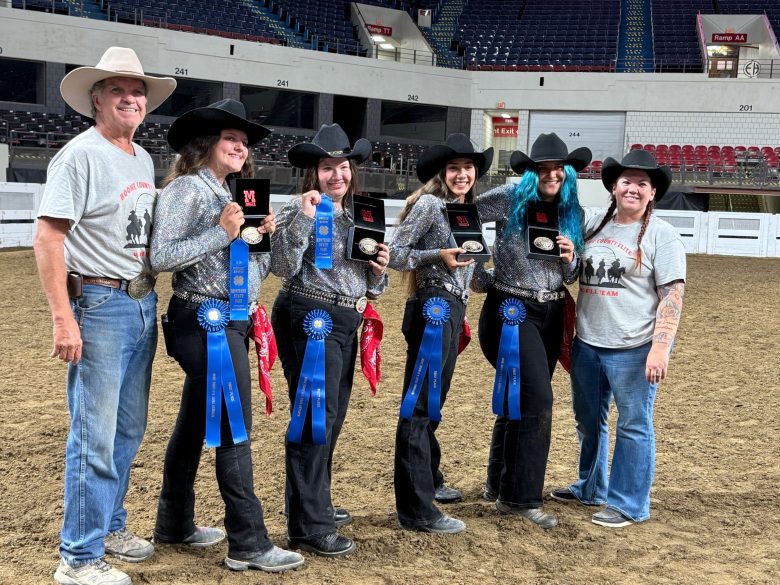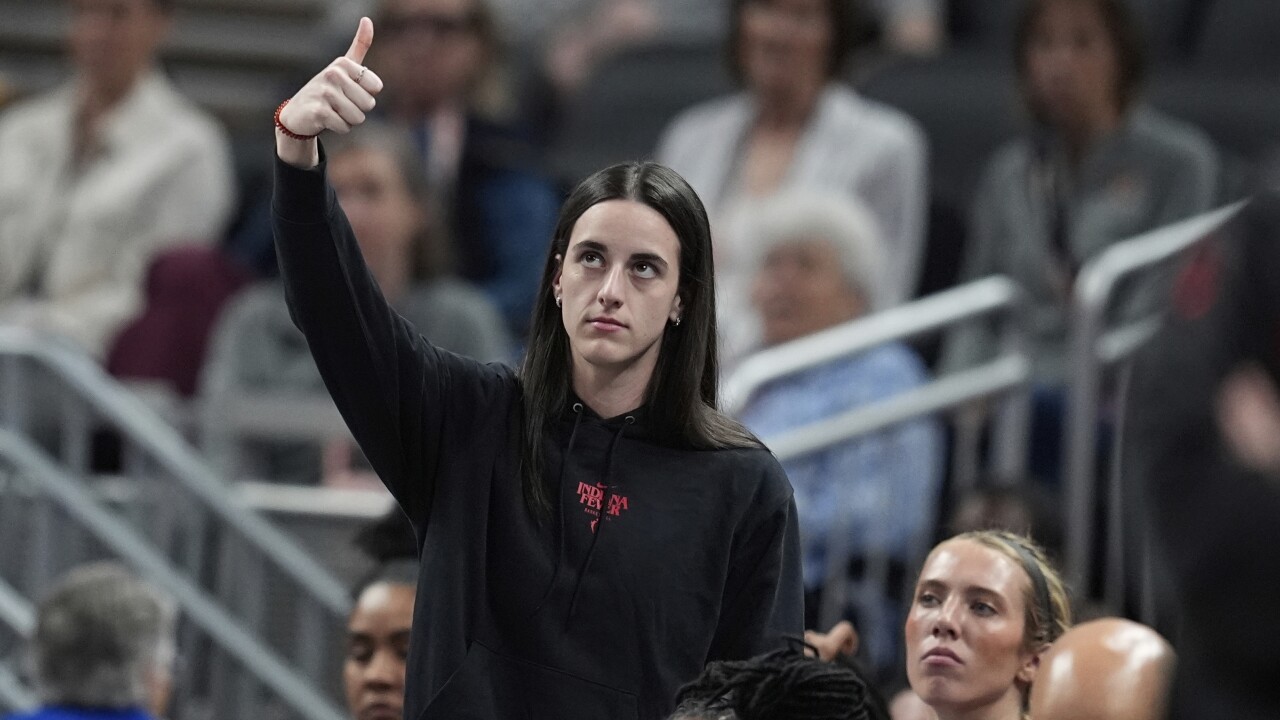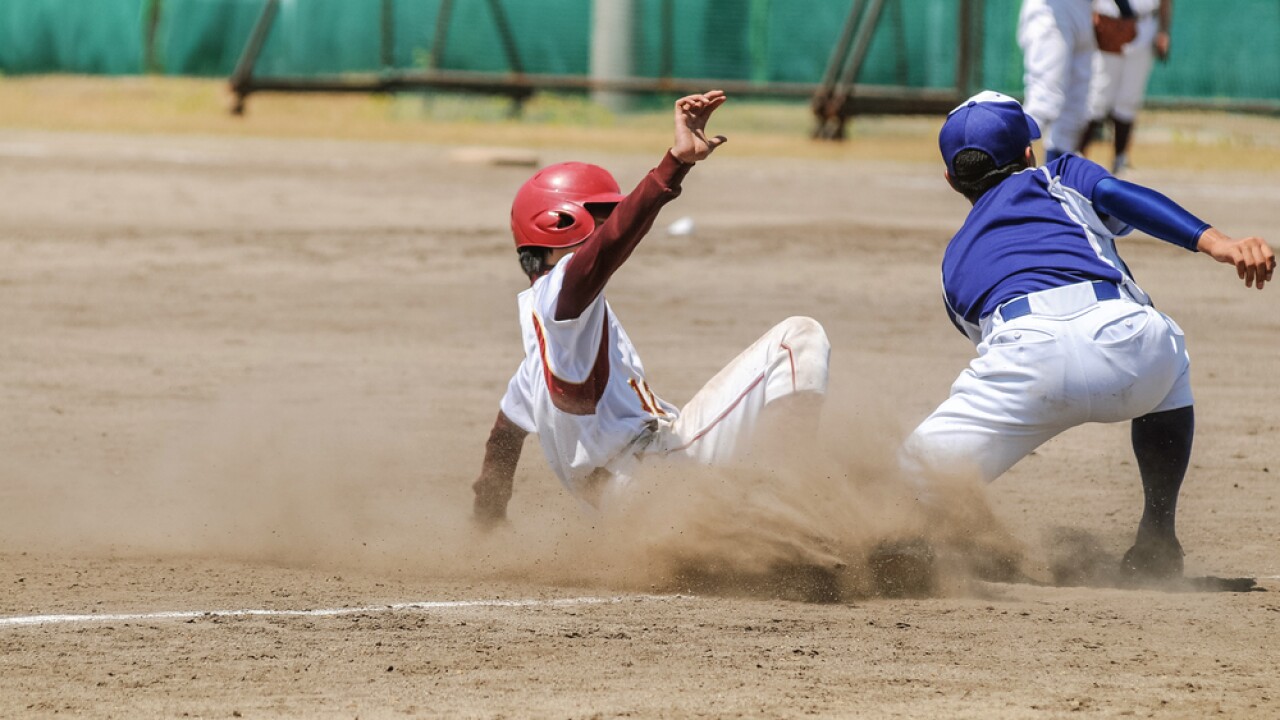Boone County’s 4-H equestrian drill took home the state championship in the small team division at the end of last month following a performance at the Kentucky Expo Center in Louisville on June 28, competing with an all-mustang team.
“I do not know any other drill team that actually rides only mustangs,” said Mike Cassedy, who pioneered the method the team uses to train their horses. “We are that unique.”
4-H
, which stands for
head, heart, hands and health
, is a national program that fosters youth development through various agricultural learning, civic and health initiatives. 4-H has a large presence in Boone County, and the drill team event tasks competitors with creating a choreographed routine with their horses. The four riders on the team were responsible for caring for and working with the horses throughout the competition.
“It’s kind of like learning a new language,” said rider Kendall Hardesty, Cassedy’s granddaughter and daughter of Head Coach April Herman. “I’d say it’s a whole different kind of communication. They [the horses] don’t understand what you’re telling them, but they understand what you’re feeling.”
Cassedy said he’d been around horses most of his life, but he fell in love with mustangs after someone invited him to work with a horse that was throwing its riders. It turned out to be a mustang. He went home and told his daughter, Herman, who suggested getting their own mustang.
Find things to do across NKY and a collection of our latest arts and culture reporting.
Then in 2017, they adopted a mustang from Illinois called One Mustang’s Journey, or simply Journey, who’s now 14 years old and still competing on the drill team. Journey now belongs to Herman, and his rider in the competition is Marissa Jones.
“He’s a goofball,” Jones said of Journey’s personality. “Not in a mean way, but he’s really not a smart horse. Like, it doesn’t take much to make him really happy. He enjoys drill.”
Drill team training season starts in September and extends to the final competition in the summer. Competition training works this way: Herman will first draw out the routine on paper on her own. Then the riders learn the choreography on foot before finally getting on the horses to train the animals in the routine.
“Horses are naturally claustrophobic,” Herman said. “So, what we’re asking them to do is maneuvers where they look like they’re going to run into each other, but they don’t…That’s very, very unnatural for a horse.”
Compared to horses born and raised in captivity, mustangs present numerous challenges when it comes to training and even being around humans. Historically, Cassedy said, training mustangs was based on pressure and dominance, essentially trying to break the horse’s will to make it compliant. His training method takes a different approach, however, focusing on understanding the horse’s psychology so that it develops a friendly working relationship with its rider.
“Mustangs, when they come to you wild, they live by flight or flight…,” said Herman. “They’re just sensitive; they’re hard wired, hard wired for survival.”
“I have relatives up on the Rosebud Sioux Reservation and up on Crow Creek Reservation [in South Dakota], and my foundation to my horse training came from my uncle, Albert White Horse, when I was a kid,” Cassedy said. “One of the things that he said to me, ‘See what they see, think what they’re thinking, and you will have the horse.’ That’s really been the foundation to my training.”
“It’s so much of just trying to read their body language and accepting what is their story to be told,” Herman said.
It can require a lot of patience on the part of the trainer.
“I’ve had mustangs that I’ve been able to go into a round pen with and just sit in the middle of it, and they’ll start 30 feet away from you,” Herman said, because the horses are so nervous around humans. Gradually, the trainer will approach the horse, read its body language and either continue approaching or back off if it becomes agitated. Over time, the horses begin to realize humans aren’t a threat, but the time it takes for each horse to reach that point varies.
“Journey was an interesting case where I was able to touch him, pet him, brush him within 48 hours of him arriving home as a totally wild horse,” Herman said. “But, you know what the crazy thing is? I could not touch his face.”
It took 33 days of consistent, calm training before Journey let Herman ride him.
“It’s probably the closest thing to family that isn’t family that you’ll ever have,” Hardesty said. “Honestly, I grew up a pretty shy kid, and I didn’t have a lot of people around me. And joining this team, I think, was a way to make lifelong memories and lifelong friends for me.”
Beyond the sport itself, the competition instills valuable life skills for the youth riders, Herman said.
“Get out of your cell phones, take a deep breath, learn to communicate together,” Herman said. “This just makes it that much harder when it’s with these horses because that’s a whole other layer. They’re their own brains, too.”
“It’s definitely a wonderful experience, and I wouldn’t trade it for the world,” Jones said.
Watch team members Mariah Cassedy, Kendall Hardesty, Marissa Jones and Diane Hicks and their horses, Survivor, Yahtzee, Journey and Phoebe perform their winning routine below.
Liked this story? Help make the next one possible.
Independent local news doesn’t happen without community support. Your monthly donation helps us keep covering the people, issues, and places that make Northern Kentucky what it is.
When you give, you’re not just supporting one story — you’re investing in all the ones still to come.
SUPPORT LOCAL NEWS






